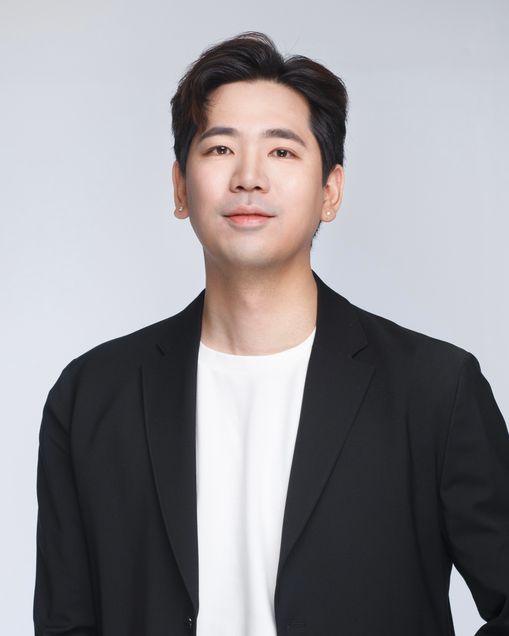Seungbin Oh, PhD
Core Faculty and Assistant Professor
Education: I earned my MS degrees in Clinical Mental Health Counseling and Art Therapy Counseling from Emporia State University and received my PhD in Counselor Education at the University of Central Florida, Orlando.

Full Curriculum Vitae
Clinical Interests
- Suicidality among youth and young adults, particularly in relation to social media use
- Cultural and social determinants of mental health
- Culturally informed clinical practice and outcome research
- Psychological assessment and scale development
I utilize a relational, experiential, and developmental approach to learning, as I view learning as a developmental process of building and re-building knowledge as students interact with others and acquire new information and experiences. Above all, I place great importance on creating a safe and supportive environment where students explore and reflect on their thoughts, take risks, ask questions, challenge ideas, and share their views. I believe that the power of the counseling relationship crosses over to teaching and supervision. Thus, I am intentional in developing and maintaining strong student-instructor relationships by demonstrating warmth, genuineness, unconditional positive regard, collaborative goal-setting, and cultural humbleness in the classroom. I have often found that modeling such behaviors in both teaching and supervision provides counselors-in-training with examples for how they might approach their counseling relationships as they embark on their clinical experiences. Furthermore, I believe a critical aspect of relationship-centered teaching involves identifying where students are developmentally and meeting them there, yet challenging them to learn, grow, and take risks while providing them with caring but constructive, genuine feedback along the way.
Why did you choose to be a faculty member in the Mental Health Counseling and Behavioral Medicine Program?
I share values cultivated at Boston University’s Mental Health Counseling and Behavioral Medicine Program for research and exceptional instruction, as well as the commitment to make a positive impact in our culturally diverse communities. I was impressed with the program’s focus on student-centered learning and mentorship. As a counselor educator, I am passionate about working closely with and mentoring our future mental health counselors, so I am more than excited to be a part of a program that values students’ learning and individualized mentoring for each student. I was also very impressed with the program’s emphasis on the mission of training our students to become more multiculturally and socially conscious counselors. As an individual who comes from a different cultural and national background, I have always been fascinated by work of inclusivity and diversity and am committed to working with our students to address mental health disparities among culturally diverse communities. Lastly, I was very excited to join the already impressive faculty in the Mental Health Counseling Program. I am grateful every day for the opportunity to learn from each faculty in the program who has a unique focus, experience, knowledge, and wisdom.
Memberships
- American Counseling Association
- Association for Counselor Education and Supervision
- Association of Multicultural Counseling and Development
- Association for Assessment and Research in Counseling
Teaching
-
Social and Cultural Foundations in Counseling
-
Human Growth and Development
-
Basic Mental Health Assessment
Select Publications and Presentations
-
Oh, S., Do, R., & Kim, S. (2025). Temporal trends in suicide among adolescents and young adults in the United States, Canada, and South Korea: 2001-2023. Preventive medicine, 108399. Advance online publication. https://doi.org/10.1016/j.ypmed.2025.108399
-
Oh, S., Banawa, R., Keum, B., Zhou, S. (2024). Suicidal behaviors associated with psychosocial stressor and substance use among Asian/Asian American College Students. Journal of Affect Disorder. 372, 540–547. https://doi.org/10.1016/j.jad.2024.12.052.
-
Oh, S., Liu, C., Kitchen, M., & Hahm, H. C. (2024). Prescription Opioid Misuse, Comorbid Substance Use, and Suicidal Behaviors Among US Young Adults: Findings from 2015-2019 National Survey on Drug Use and Health. Substance use & misuse, 1–7. Advance online publication. https://doi.org/10.1080/10826084.2024.2422950
-
Oh, S., Litam, S., & Chang, C (2022). COVID-19 Racial discrimination and mental health of Korean Americans: Role of ethnic identity and coping strategy. Stigma and Health, 7(4), 461–470. https://doi.org/10.1037/sah0000407
-
Oh, S., Chang, C., Priest., A., & Kwag, D. (2022). Relationship between Orientation toward Multicultural Competence, Multicultural Competent Behaviors, and Working Alliance: Examining a Multigroup Mediation Model. Journal of Counseling and Development. Advance Online Publication, 1-12. https://doi.org/10.1002/jcad.12441
-
Oh, S., & Shillingford-Bulter, A. (2021). Client assessment of multicultural competent behavior (CAMCB): Development and validation. Measurement and Evaluation in Counseling and Development, 54(2), 71-89. doi:10.1080/07481756.2020.1745651
Honors and Awards
- 2023 ACA Research Award, American Counseling Association (ACA).
- 2021 Patricia B. Elmore MECD Article of Year, Association for Assessment and Research in Counseling (AARC).
- 2019 Article of the Year Award, Association for Specialists in Group Work (ASGW)
- 2018 Courtland C. Lee Multicultural Excellence Scholarship Award American Counseling Association (ACA)
Recipient of the ASGW (Association for Specialists in Group Work) 2019 Article of the Year Award